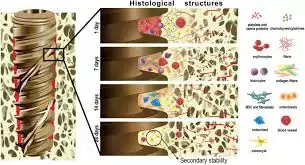- Home
- Medical news & Guidelines
- Anesthesiology
- Cardiology and CTVS
- Critical Care
- Dentistry
- Dermatology
- Diabetes and Endocrinology
- ENT
- Gastroenterology
- Medicine
- Nephrology
- Neurology
- Obstretics-Gynaecology
- Oncology
- Ophthalmology
- Orthopaedics
- Pediatrics-Neonatology
- Psychiatry
- Pulmonology
- Radiology
- Surgery
- Urology
- Laboratory Medicine
- Diet
- Nursing
- Paramedical
- Physiotherapy
- Health news
- Fact Check
- Bone Health Fact Check
- Brain Health Fact Check
- Cancer Related Fact Check
- Child Care Fact Check
- Dental and oral health fact check
- Diabetes and metabolic health fact check
- Diet and Nutrition Fact Check
- Eye and ENT Care Fact Check
- Fitness fact check
- Gut health fact check
- Heart health fact check
- Kidney health fact check
- Medical education fact check
- Men's health fact check
- Respiratory fact check
- Skin and hair care fact check
- Vaccine and Immunization fact check
- Women's health fact check
- AYUSH
- State News
- Andaman and Nicobar Islands
- Andhra Pradesh
- Arunachal Pradesh
- Assam
- Bihar
- Chandigarh
- Chattisgarh
- Dadra and Nagar Haveli
- Daman and Diu
- Delhi
- Goa
- Gujarat
- Haryana
- Himachal Pradesh
- Jammu & Kashmir
- Jharkhand
- Karnataka
- Kerala
- Ladakh
- Lakshadweep
- Madhya Pradesh
- Maharashtra
- Manipur
- Meghalaya
- Mizoram
- Nagaland
- Odisha
- Puducherry
- Punjab
- Rajasthan
- Sikkim
- Tamil Nadu
- Telangana
- Tripura
- Uttar Pradesh
- Uttrakhand
- West Bengal
- Medical Education
- Industry
Osseodensification improves implant success and stability without compromising crestal bone levels, finds study

Researchers have found in a new study that Osseodensification improves osseointegration, reduces surgical trauma, and preserves bone, making it a valuable technique for implant placement in a low-density bone where poor primary implant stability is expected. The study has been published in the Journal of prosthetic Dentistry.
This systematic review and meta-analysis analyzed how implant stability and crestal bone level vary in a low-density bone in osseodensification osteotomy and conventional osteotomy. The SCOPUS, PUBMED, and Google Scholar databases were searched, along with a manual search, for articles published between January 2013 and January 2024.
The Preferred Reporting Items for Systematic Reviews and Meta-Analyses (PRISMA) guidelines were followed to select the studies for review. A total of 5 studies were included in this systematic review. The Joanna Briggs Institute (JBI) tools were used to conduct the risk of assessment of the included articles, and forest plots were generated for the included articles (α=.05).
Results: The data were assimilated from a small sample size of 109 patients and 198 implants. The meta-analysis found that osseodensification resulted in significantly higher implant stability quotient (P<.05) values at baseline and follow-up, while the crestal bone level changes were not found to be significant (P>.05) at baseline or on follow-up visits. The osseodensification drilling protocol displayed an advantage over the conventional drilling protocol regarding higher primary stability and secondary stability, as well as bone expansion in low-density bone. No significant difference in crestal bone loss was found in either technique at baseline or at follow-up.
Reference:
Kalra J, Dhawan P, Jain N. Implant stability and crestal bone level in osseodensification and conventional drilling protocols: A systematic review and meta-analysis. J Prosthet Dent. 2024 Aug 26:S0022-3913(24)00524-9. doi: 10.1016/j.prosdent.2024.07.036. Epub ahead of print. PMID: 39191537.
Dr. Shravani Dali has completed her BDS from Pravara institute of medical sciences, loni. Following which she extensively worked in the healthcare sector for 2+ years. She has been actively involved in writing blogs in field of health and wellness. Currently she is pursuing her Masters of public health-health administration from Tata institute of social sciences. She can be contacted at editorial@medicaldialogues.in.
Dr Kamal Kant Kohli-MBBS, DTCD- a chest specialist with more than 30 years of practice and a flair for writing clinical articles, Dr Kamal Kant Kohli joined Medical Dialogues as a Chief Editor of Medical News. Besides writing articles, as an editor, he proofreads and verifies all the medical content published on Medical Dialogues including those coming from journals, studies,medical conferences,guidelines etc. Email: drkohli@medicaldialogues.in. Contact no. 011-43720751


